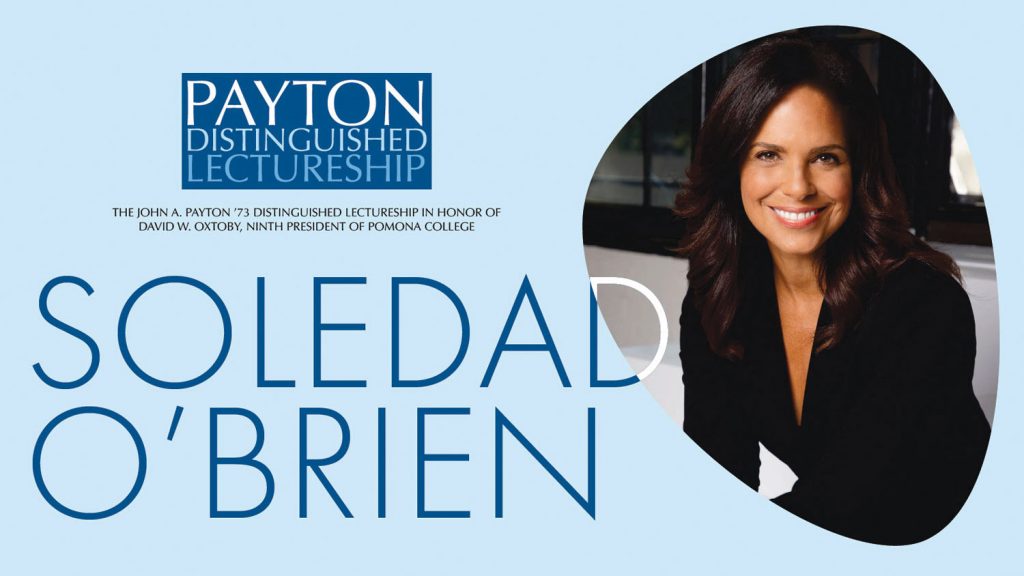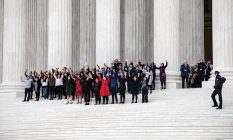
As a law student at UC Irvine, Viridiana Chabolla ’13 became a plaintiff in the case that preserved DACA. Now she gives a voice to immigrants by advocating for others.
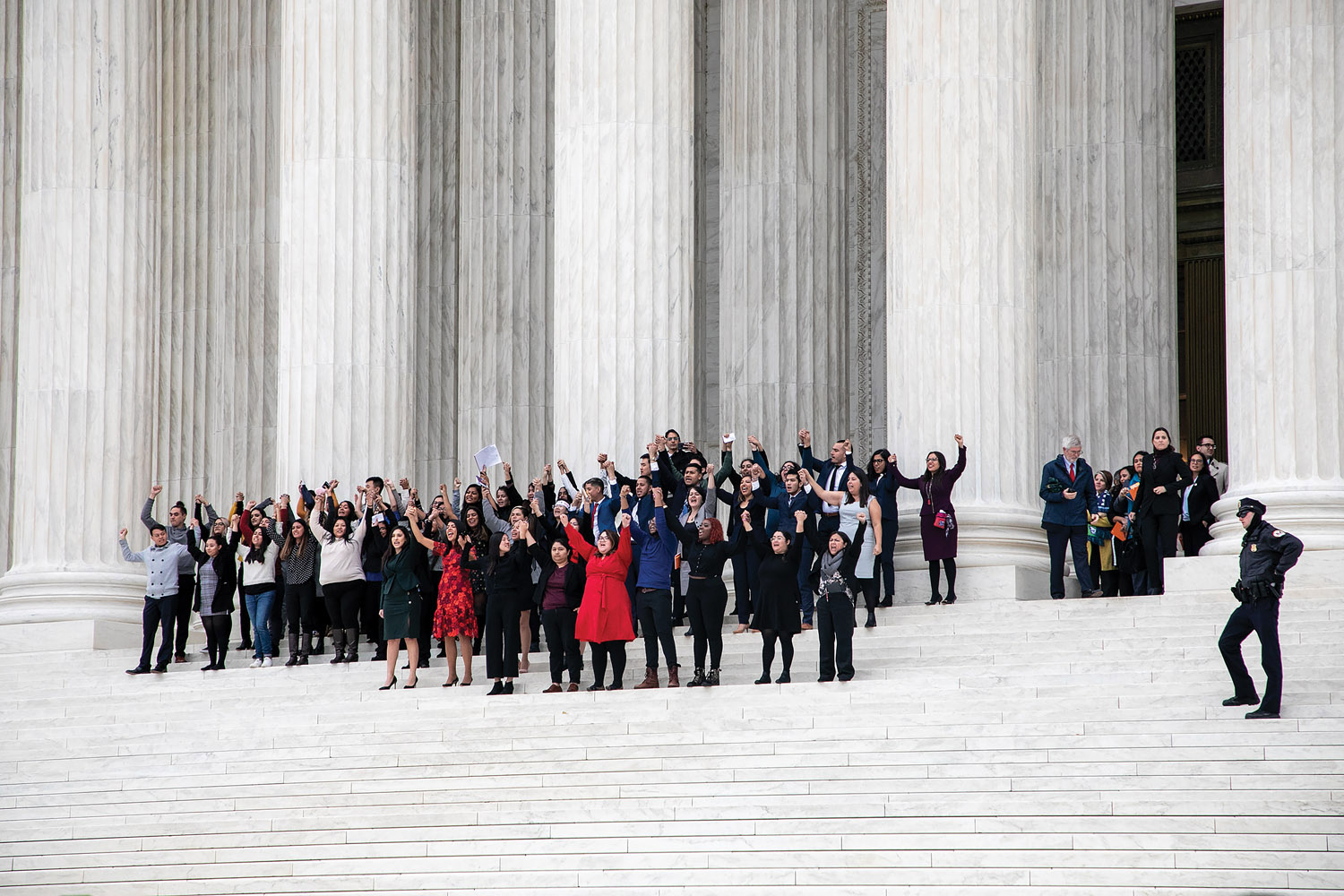 There are not a lot of big wins for Viridiana Chabolla ’13 in her line of work. It’s not for a lack of trying, or a lack of sweat and tears. Her commitment has been tested over the years but she remains determined. Chabolla is an attorney working in immigration law. The landscape is grim, she says. It can be heartbreaking. Demoralizing. She’s not just an attorney. She is an immigrant, too, and for most of her life she was undocumented.
There are not a lot of big wins for Viridiana Chabolla ’13 in her line of work. It’s not for a lack of trying, or a lack of sweat and tears. Her commitment has been tested over the years but she remains determined. Chabolla is an attorney working in immigration law. The landscape is grim, she says. It can be heartbreaking. Demoralizing. She’s not just an attorney. She is an immigrant, too, and for most of her life she was undocumented.
In February, the Los Angeles Times wrote a story about one of her recent clients. Leonel Contreras, a U.S. Army veteran, was a legal permanent resident before being deported to Mexico after serving time for a nonviolent crime. Contreras had grown up in the U.S., but after his deportation he worked and lived in Tijuana for at least a decade before the Immigrant Defenders Law Center in Los Angeles took his case and Chabolla helped him return to his family members in California. He became a U.S. citizen earlier this year.
“It’s really nice to wave an American flag at a naturalization ceremony,” says Chabolla, who began working at the Immigrant Defenders Law Center (ImmDef) in October 2021. “Immigration law is so harsh and when it’s not harsh, it’s just not helpful. It’s hard to have a win. When you have those moments, you have to grab on and make them last.”
Chabolla was born in Guanajuato, Mexico. Her mother came to the U.S. to escape a bad relationship and start a new life. A 2-year-old Chabolla and the rest of her mother’s family joined her soon after. Chabolla grew up with her grandparents, aunts and cousins all living close to each other in East Los Angeles. “I’d remember seeing my mom and aunts getting ready for work at ridiculous hours of the day,” she says of the early-morning hubbub. “I remember always being surrounded by people and conversations. There were a lot of disagreements but a lot of love.”
When she was 11, Chabolla met a group of lawyers who worked in East L.A. Although she didn’t know what exactly they did, she recalls thinking that they seemed to hold a lot of power. They seemed to have some kind of authority to help her and others like her—people who were not born in the U.S.
It was during Chabolla’s junior year at Pomona that the Obama administration established an immigration policy that changed her life. Deferred Action for Childhood Arrivals (DACA) allowed certain immigrants who were brought to the U.S. as children to receive a renewable two-year period of deferred action from deportation and also become eligible for a work permit.
For the first time, Chabolla was able to have a job on campus. She saved her first pay stub. It wasn’t much in terms of money, but it was significant for Chabolla.
With DACA, Chabolla’s future seemed a bit brighter. She could now apply for jobs after graduation. Her first work after Pomona was as an organizer with the pro bono legal services nonprofit Public Counsel, a choice that set her on a course for a win of historic proportions.

The Trump administration’s 2017 decision to rescind DACA (Deferred Action for Childhood Arrivals) set off protests in multiple cities.
For four years, Chabolla took down the stories of plaintiffs for cases being handled by Public Counsel. As time passed, she began to feel more empowered to share her immigration status with her director, Mark Rosenbaum, even as the national political landscape was transitioning from an Obama presidency to a Trump one.
“When Trump was elected, I broke down,” she says. She remembers Rosenbaum calling her to tell her she didn’t have to go to work the next day: “Go be with your family, go through your emotions,” he told her.
“We didn’t know what Trump would do first. We just hit the ground running,” says Chabolla, who worked on the defense case for Daniel Ramirez Medina, the first person to have his DACA permit taken away. “With everything going on, we focused on putting out fires. Trump wasn’t taking out DACA in one go just yet. He was creating all of this panic everywhere first.”
Her time at Public Counsel rekindled Chabolla’s original interest in law.
“I kept thinking of the best way I could help others. I loved the idea of gaining new knowledge, and a degree in law would allow me to have a sense of power,” she says. The attorneys at Public Counsel, like her boss Rosenbaum, not only practiced law and led big cases but they also wrote articles and taught university-level courses.
In September of 2017, the Trump administration announced it was officially rescinding DACA. Chabolla had just started at the UC Irvine School of Law. Her initial response was to focus on school and wait.
Then Chabolla got a call from Rosenbaum. “He called me to be a plaintiff in a case against the United States. I felt terrified.”
Chabolla phoned her mother and her family. “If I shared my story, I would have to share their story,” she says. She also was married by then and discussed the possible ramifications with her husband.
Her family was supportive. Chabolla felt compelled to help.
The Public Counsel lawsuit led by Rosenbaum was filed as Garcia v. United States. As it made its way through the higher courts, it was merged with four other cases and ultimately became known as Department of Homeland Security v. Regents of the University of California by the time it reached the U.S. Supreme Court.
As a plaintiff in the case, Chabolla shared her story with a lawyer for a written declaration. While she never testified before any judges, she did have to share her immigration story multiple times as the case garnered national media attention.
On June 18, 2020, the Supreme Court delivered its 5-4 decision blocking the Trump administration’s elimination of DACA. Chabolla was in Washington for the hearing. “A few of us got to go inside,” she recalls. “Some DACA students were there, too. And it was really powerful. These justices were hearing arguments on this huge case…but I know maybe for them all cases they hear are huge. But we occupied half the room and that was really powerful and really unusual.”
Chabolla took notes during the hearing. “I remember writing down something that Justice [Sonia] Sotomayor said: ‘This is not about the law; this is about our choice to destroy lives.’
“So much of what Trump did was done without following administrative law,” explains Chabolla about how they “won” this case. “Trump didn’t follow procedure,” she says. “If they had taken their time and done it right, it would have passed. But I remember taking the win.”
Chabolla, who had just recently become a U.S. resident through marriage, remembers feeling relief for the DACA community.
“The DACA victory in the Supreme Court is a testament to the vision, commitment and tireless efforts of many, and Viri’s name would surely be at the top of that list,” says Rosenbaum. “I had the privilege of working with Viri at Public Counsel, first as an organizer…and then to come forward as a plaintiff in Garcia to inspire others to do the same and make the case that our nation needs DACA recipients to build a kinder and more inclusive community for all of us.”
Upon returning home, Chabolla once again focused on school—it was her second-to-last semester at UC Irvine. She spent a year as a graduate legal assistant with the Office of the Attorney General for the California Department of Justice. It was a tough gig for a newly graduated lawyer. After one year, she left for her current job as a staff attorney at ImmDef, a legal services nonprofit with a post-conviction unit that drew her interest. “They take on clients who have criminal convictions like possession of marijuana from 40 years ago with deportation orders—deportation is not a fair punishment for everyone.
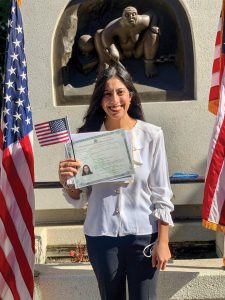
Viridiana Chabolla ’13, who was brought to the U.S. from Mexico at 2 years old, on the day she became a U.S. citizen in 2021.
“Many of our clients have been living here as legal permanent residents for more than 20 years. Most find out they’re getting deported just when they’re going to be released,” she says. “The statistics show that immigrants commit fewer crimes than the general population and our clients have already served their time—in jail, or prison, they’ve paid their dues and they’ve even paid their fines. Adding deportation is a way of saying ‘I don’t like that you’re an immigrant.’ It’s extra punishment.”
The work is tough. “My supervisor has shared that sometimes we have to redefine what a win is,” says Chabolla. “It makes up partially for the times when we have a clinic and all these people show up thinking they can apply for residency when they actually can’t.”
She says that the immigrants she talks to are so full of hope. They believe that an attorney—like herself—can do it all. “Every situation is different. No lawyer has a miracle cure.
“It’s heartbreaking to know how many people are becoming elders who don’t have a nest egg, who paid taxes into the system but they can’t access Social Security, can’t access Medicare,” Chabolla adds. “It’s something I’ve been thinking a lot about in the past two years: How can I help aside from placing my hopes in a Congress that is more concerned about building borders than dealing with these issues?”
In 2021, Chabolla became a U.S. citizen. The day was bittersweet and laden with guilt. “It was one of those moments where I felt I was further abandoning my undocumented community, but I know that’s not true,” she says. Although her mother recently became a U.S. resident, some of her family remains undocumented.
Chabolla says she’s been able to find some balance as an ally who was once directly impacted by immigration policies. “I’m trying to find a place where I can remain hopeful in my job and be a zealous lawyer and advocate.”
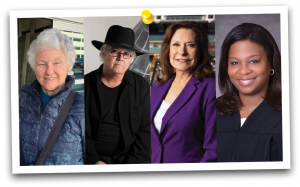
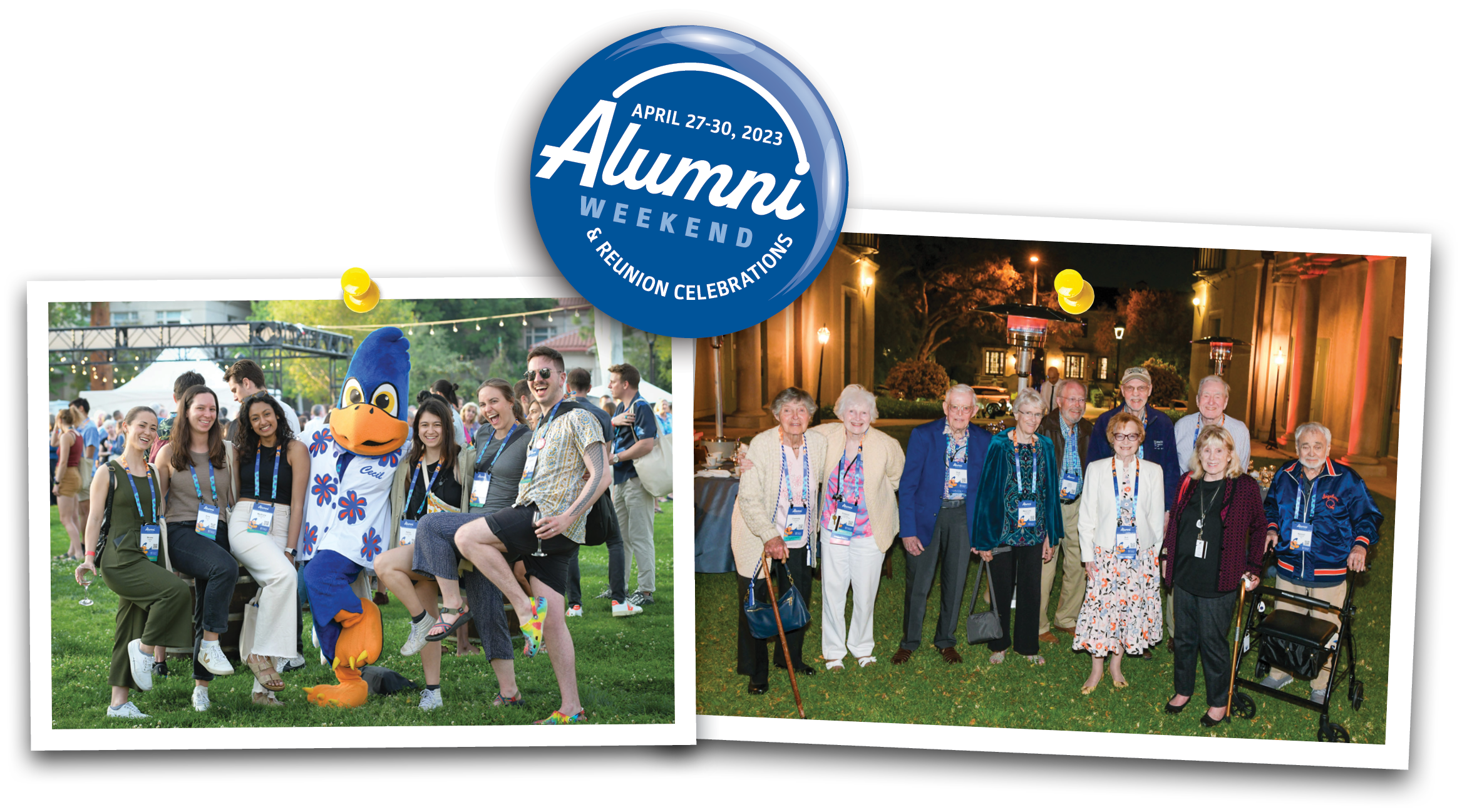
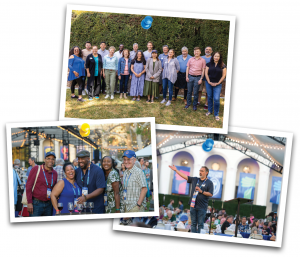
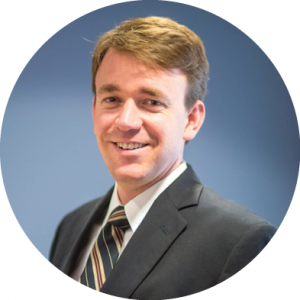


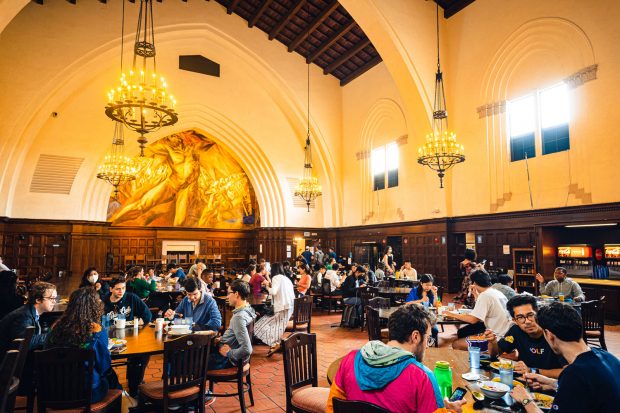
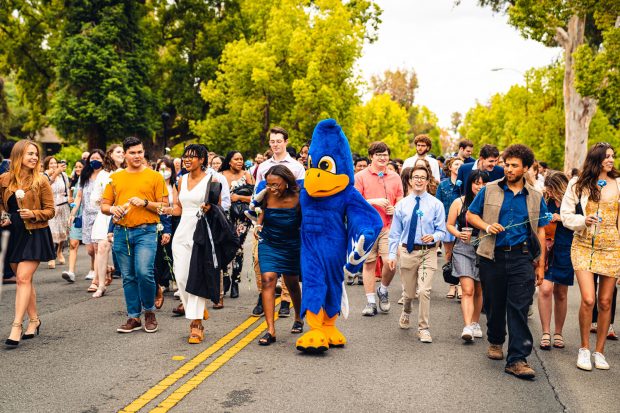
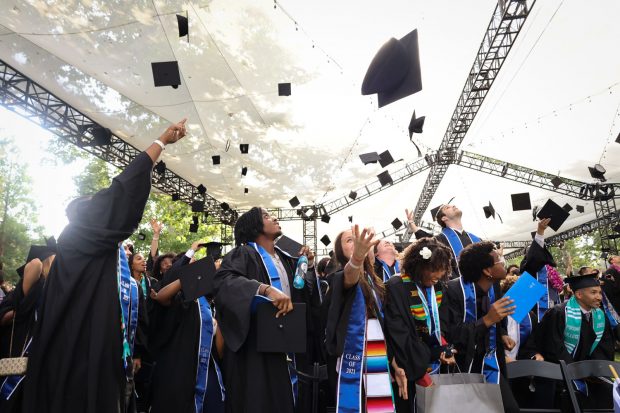
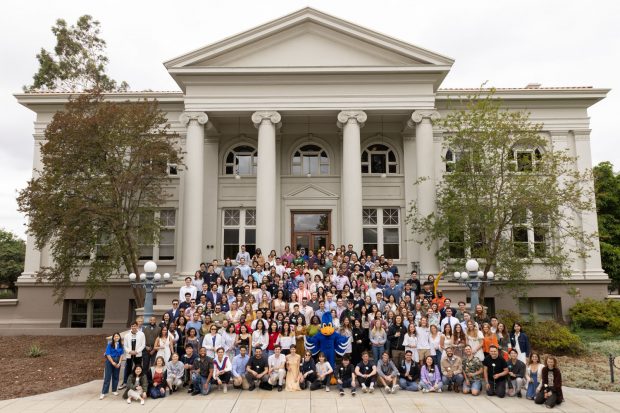
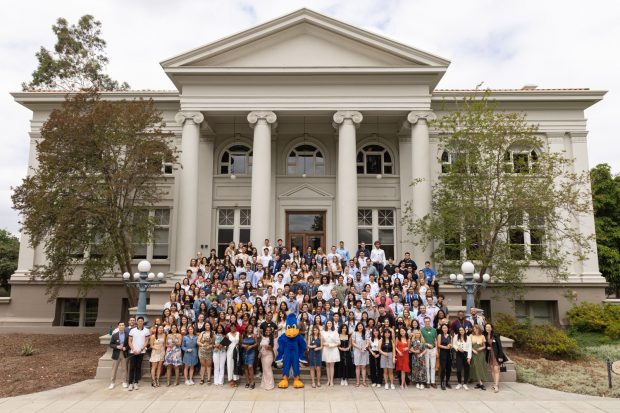
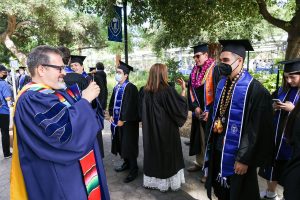
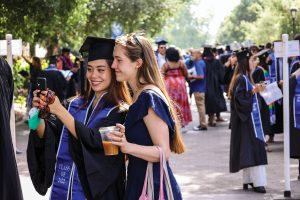
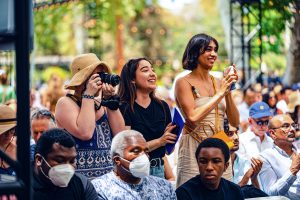

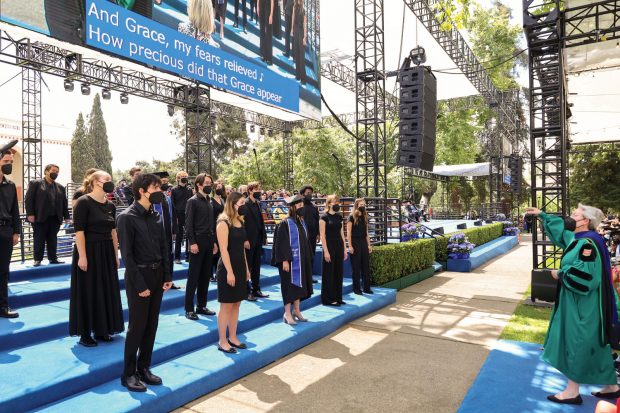
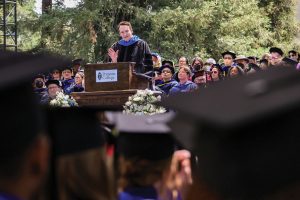
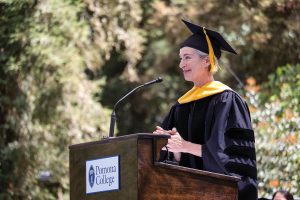
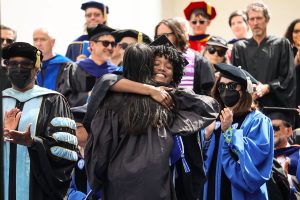
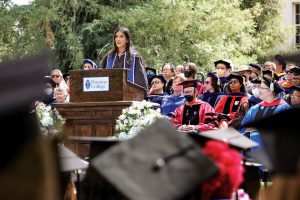
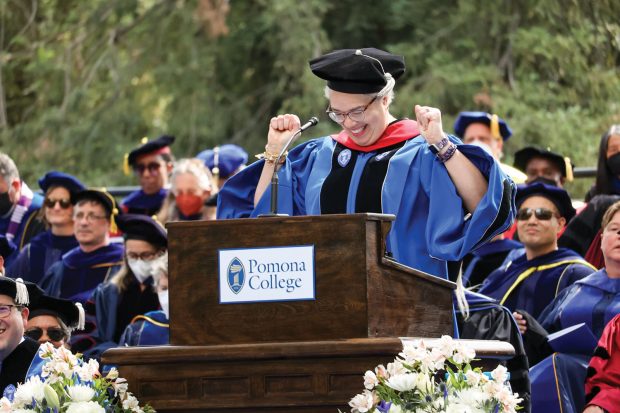
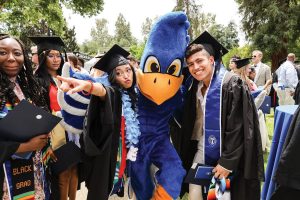
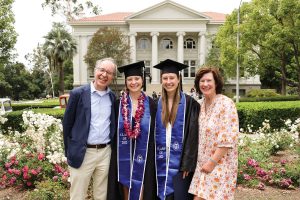
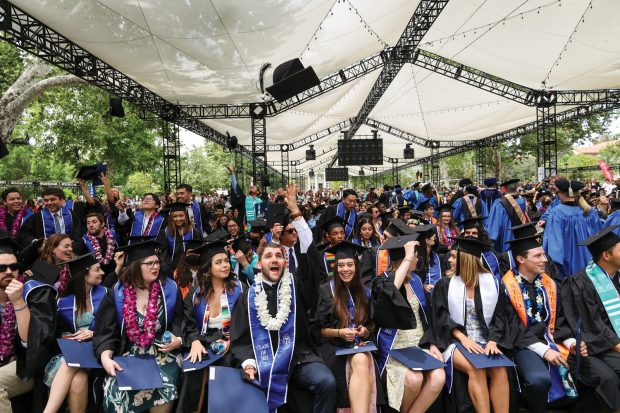
 Rhino Records, a Claremont Village staple since 1974, has closed its doors. That elicited a Twitter lament from Professor of Politics David Menefee-Libey (@DMenefeeLibey) and responses from Aditya Sood ’97 and Brian Arbour ’95.
Rhino Records, a Claremont Village staple since 1974, has closed its doors. That elicited a Twitter lament from Professor of Politics David Menefee-Libey (@DMenefeeLibey) and responses from Aditya Sood ’97 and Brian Arbour ’95.